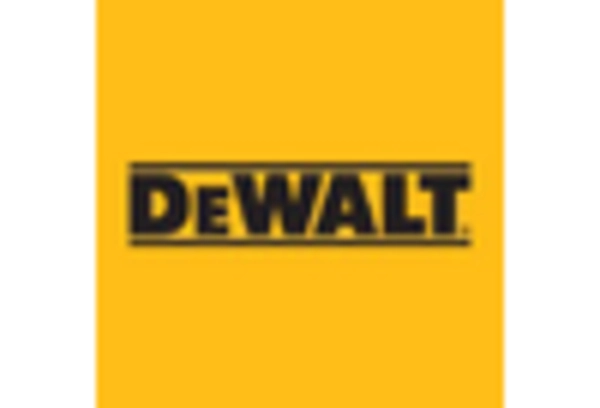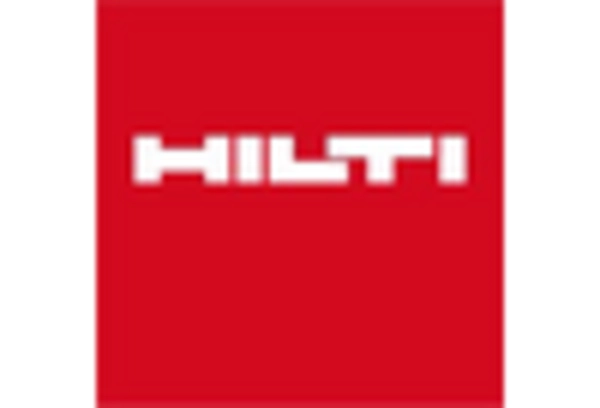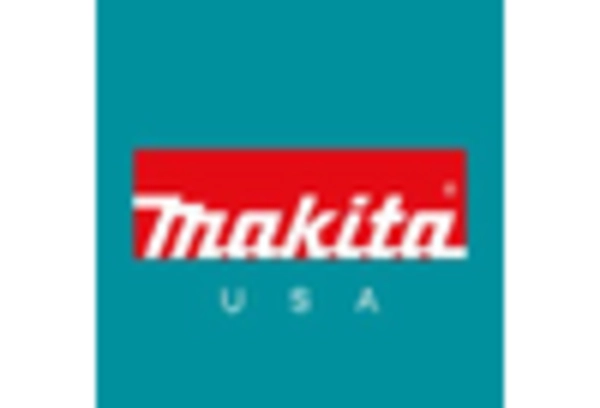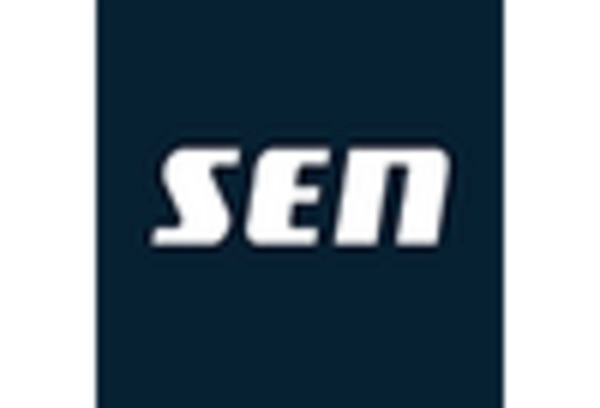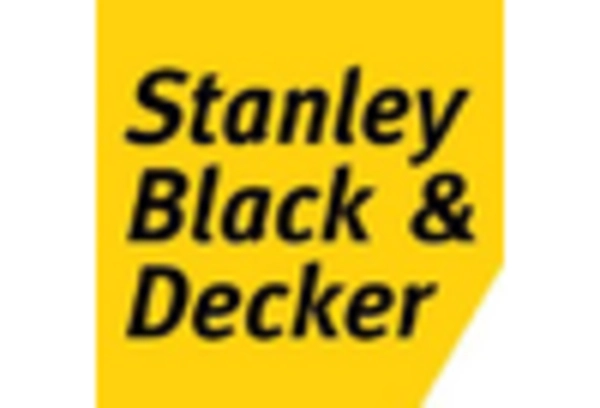Increased DIY Culture
The rise of the do-it-yourself (DIY) culture in the United States profoundly impacts the builder hardware market.. As more individuals engage in home improvement projects, the demand for builder hardware products surges. In 2025, it is projected that the DIY segment will account for approximately 30% of the total sales in the builder hardware market. This trend is fueled by the availability of online resources, tutorials, and home improvement shows that inspire consumers to undertake their own projects. Retailers are responding by expanding their offerings of builder hardware products tailored for DIY enthusiasts, including user-friendly tools and materials. Consequently, manufacturers are likely to focus on developing products that cater to this growing segment, ensuring they meet the needs of both professional builders and DIY consumers.
Rising Construction Activities
The builder hardware market experiences a notable boost due to the increasing construction activities across the United States. As urbanization continues to expand, the demand for residential and commercial buildings rises, leading to a heightened need for various hardware components. In 2025, the construction sector is projected to grow by approximately 5.5%, which directly influences the builder hardware market. This growth is driven by both public and private investments in infrastructure, residential projects, and commercial developments. Consequently, manufacturers in the builder hardware market are likely to see increased orders for essential products such as fasteners, hinges, and locks, which are critical for construction projects. The ongoing trend of renovating existing structures also contributes to the demand for builder hardware, as older buildings require updated hardware solutions to meet modern standards.
Regulatory Compliance and Standards
Regulatory compliance and industry standards significantly influence the builder hardware market.. In the United States, various regulations govern the safety and performance of hardware products, which manufacturers must adhere to in order to remain competitive. Compliance with these regulations not only ensures product safety but also enhances consumer trust. In 2025, it is anticipated that stricter regulations will emerge, particularly concerning sustainability and energy efficiency. This shift may compel manufacturers in the builder hardware market to invest in research and development to create compliant products. Additionally, adherence to standards such as ANSI and ASTM can open up new market opportunities, as builders increasingly seek certified hardware solutions that meet regulatory requirements.
Sustainability Initiatives in Construction
Sustainability initiatives are increasingly shaping the builder hardware market as environmental concerns gain prominence. In 2025, it is expected that the demand for eco-friendly hardware solutions will rise significantly, driven by both consumer preferences and regulatory pressures. Builders and contractors are actively seeking sustainable materials and products that minimize environmental impact. This shift presents opportunities for manufacturers in the builder hardware market to innovate and develop products made from recycled or sustainably sourced materials. Additionally, the integration of energy-efficient hardware solutions can contribute to green building certifications, further enhancing market appeal. As sustainability becomes a core focus in construction, companies that prioritize eco-friendly practices are likely to gain a competitive edge in the builder hardware market.
Technological Advancements in Manufacturing
Technological advancements play a crucial role in shaping the builder hardware market. Innovations in manufacturing processes, such as automation and robotics, enhance production efficiency and reduce costs. In 2025, it is estimated that the adoption of advanced manufacturing technologies could lead to a 10% increase in output for the builder hardware market. These technologies not only streamline operations but also improve product quality and consistency. Furthermore, the integration of computer-aided design (CAD) and 3D printing allows for the rapid prototyping of new hardware products, enabling manufacturers to respond swiftly to market demands. As a result, companies in the builder hardware market are better positioned to introduce innovative products that meet the evolving needs of consumers and builders alike.




